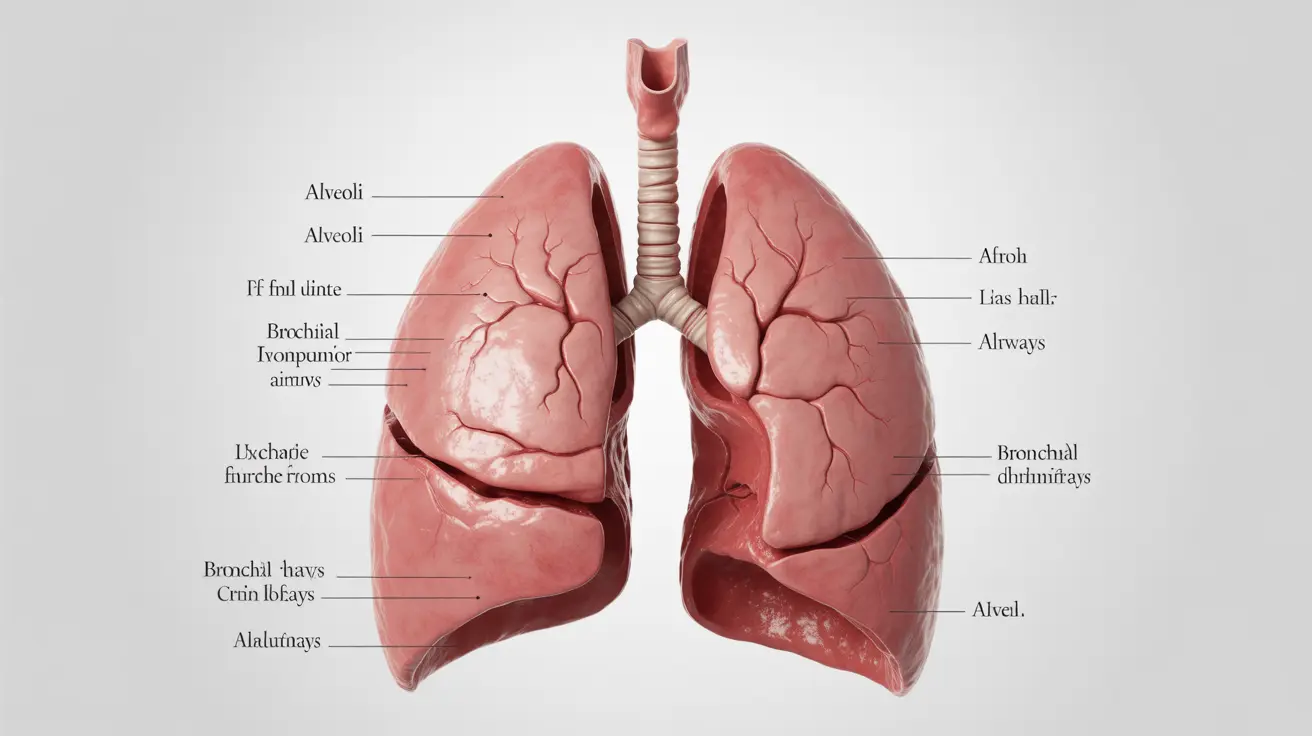If you've noticed crackling or rattling sounds when breathing while lying down, you may be experiencing a symptom that warrants medical attention. These sounds, also known as rales or crackles, can indicate various underlying health conditions affecting your lungs or heart. Understanding the causes and knowing when to seek help is crucial for maintaining your respiratory health.
Understanding Breathing Sounds and Their Significance
Crackling sounds during breathing typically occur when air moves through fluid-filled airways or when small air sacs in the lungs open up after being collapsed. These sounds can vary in intensity and may be more noticeable when lying down due to changes in fluid distribution within the lungs.
Common Causes of Crackling Sounds While Breathing
Respiratory Conditions
Several respiratory conditions can lead to crackling sounds when breathing:
- Pneumonia
- Bronchitis
- Chronic Obstructive Pulmonary Disease (COPD)
- Bronchiectasis
- Pulmonary edema
Cardiovascular Issues
Heart-related problems can also cause breathing sounds, particularly when lying down:
- Congestive heart failure
- Left ventricular dysfunction
- Valve disorders
Other Contributing Factors
Additional factors that may cause crackling sounds include:
- Post-nasal drip
- Sleep apnea
- Acid reflux
- Upper respiratory infections
Diagnostic Process
Healthcare providers use several methods to determine the cause of breathing sounds:
- Physical examination with a stethoscope
- Chest X-rays
- CT scans
- Pulmonary function tests
- Echocardiogram (if heart issues are suspected)
Treatment Approaches
Medical Interventions
Treatment options depend on the underlying cause and may include:
- Antibiotics for bacterial infections
- Diuretics for fluid retention
- Bronchodilators for airway conditions
- Anti-inflammatory medications
- Oxygen therapy when necessary
Lifestyle Modifications
Several lifestyle changes can help manage symptoms:
- Elevating the head while sleeping
- Maintaining proper humidity levels
- Avoiding triggers like smoke or allergens
- Regular exercise as recommended by healthcare providers
- Following a heart-healthy diet if cardiovascular issues are present
When to Seek Medical Attention
Seek immediate medical care if you experience:
- Severe difficulty breathing
- Chest pain
- Blue tinge to lips or fingertips
- Persistent cough with colored mucus
- Fever accompanied by breathing sounds
Frequently Asked Questions
- What causes crackling sounds when breathing while lying down?
Crackling sounds while breathing when lying down can be caused by fluid in the airways, inflammation of lung tissue, or heart conditions that affect fluid distribution in the lungs. Common causes include pneumonia, bronchitis, and congestive heart failure.
- What underlying health conditions can lead to bibasilar crackles in the lungs?
Bibasilar crackles can be caused by conditions such as pneumonia, pulmonary edema, congestive heart failure, bronchiectasis, and COPD. These conditions affect the lower portions of both lungs, leading to characteristic crackling sounds.
- How do doctors diagnose the cause of crackling sounds when breathing?
Doctors typically begin with a physical examination using a stethoscope, followed by imaging tests such as chest X-rays or CT scans. They may also order pulmonary function tests, blood work, or heart examinations depending on suspected causes.
- What treatments are available for crackling sounds caused by lung or heart problems?
Treatment varies based on the underlying cause and may include medications like antibiotics, diuretics, or bronchodilators. Lifestyle changes, such as elevating the head while sleeping or following a specific diet, may also be recommended.
- When should I seek medical attention if I hear crackling noises while breathing lying down?
Seek immediate medical attention if crackling sounds are accompanied by severe breathing difficulty, chest pain, blue discoloration of lips or fingers, fever, or persistent cough with colored mucus. These symptoms may indicate a serious condition requiring prompt treatment.




